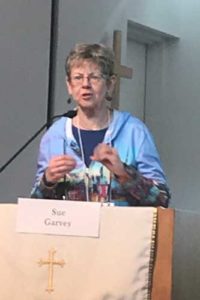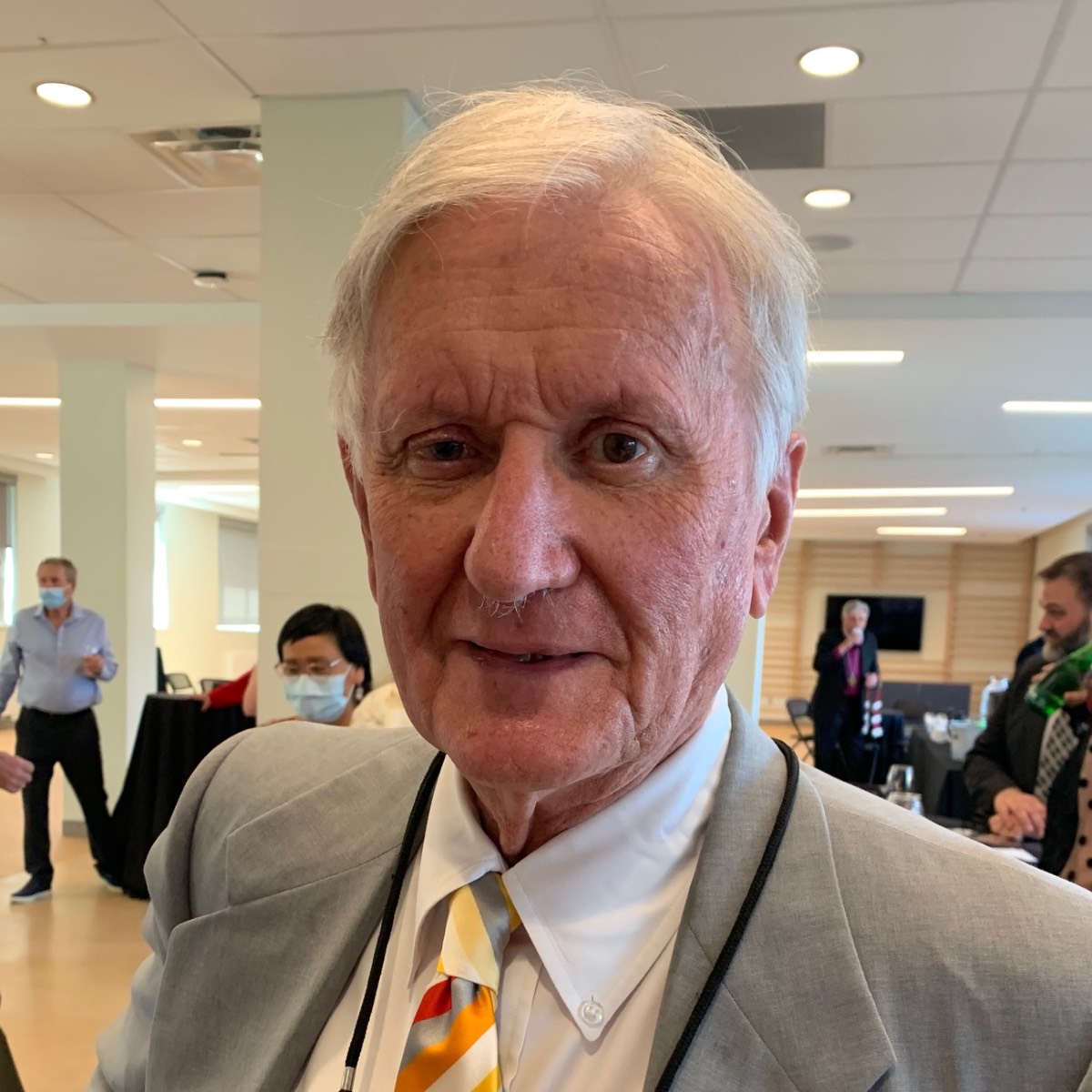The Homelessness and Affordable Housing Working Group plans to celebrate this 125th Anniversary year of the Diocese of Ottawa by redoubling its efforts to engage every parish in learning, action, advocacy and prayer.
Engaging every parish is the second of two goals of the working group, the first—the creation of 125 new affordable housing units—is on track to meet its goal with projects at Christ Church Bells Corners, Julian of Norwich, Ellwood House at St. Thomas the Apostle and Cornerstone’s Princeton Avenue home.
The working group is offering outreach to parishes that may feel they don’t have the resources to tackle a project and are uncertain how to become active. There are many ways parishes without significant financial resources can participate, Archdeacon of Carleton Kathryn Otley says. She brings the experience of the Christ Church Bells Corners project to the table. The group is fortunate to have a diversity of expertise and experience in its membership.

Moira Alie is one of 11 members. She is also project coordinator for community engagement at Alliance to End Homelessness Ottawa. She is volunteering to help a parish or an interested group find a way to join the diocese’s campaign. And she is willing to make a formal presentation or simply join a discussion and answer questions. She can tailor the discussion for any parish, rural, suburban or inner city and to suit youth, school age children or an adult audience.
“It’s not too late for a parish to get involved,” she says. There are smaller but important ways to participate such as identifying and helping vulnerable people. Moira can be contacted directly at [email protected].
Later in the year the group hopes to offer a formal workshop, Yes in My Back Yard (YIMBY). The draft framework includes sections on the causes and roots of the Not in My Back Yard (NIMBY) syndrome; myths that perpetuate it; how to proactively engage the community; working with allies; and being good neighbours.
NIMBY is used to characterize an attitude in opposition to a development – often affordable housing – that is perceived to have negative consequences such a decreased property values in the immediate community.
During the pandemic activity will of necessity be virtual. The virus has slowed but not stopped either the group’s work or the several projects already in various phases of development.
Also on the agenda is an inventory of all affordable housing and related projects across the diocese. This goes beyond the campaign for additional units to include, for example, parishes that have leased out buildings to housing tenants that may or may not renew the leases.
The working group is chaired by Canon Sue Garvey, retired executive director of Cornerstone, who herself is continually cooperating with other stakeholders and advocating on behalf of the Community Ministries. The group was set up five years ago to implement motions of Synod and the Diocesan Council calling for an approach of learning, advocacy, action and prayer concerning homelessness and affordable housing.
Over the last five years the need in the Ottawa area has continued to grow, outstripping even the most ambitious of plans to make more housing available. In addition to the city projects under way, several parishes outside Ottawa have identified affordable housing as a priority and are exploring ways to participate.


Saint Mary’s Church, Westmeath — Deanery of the Northwest